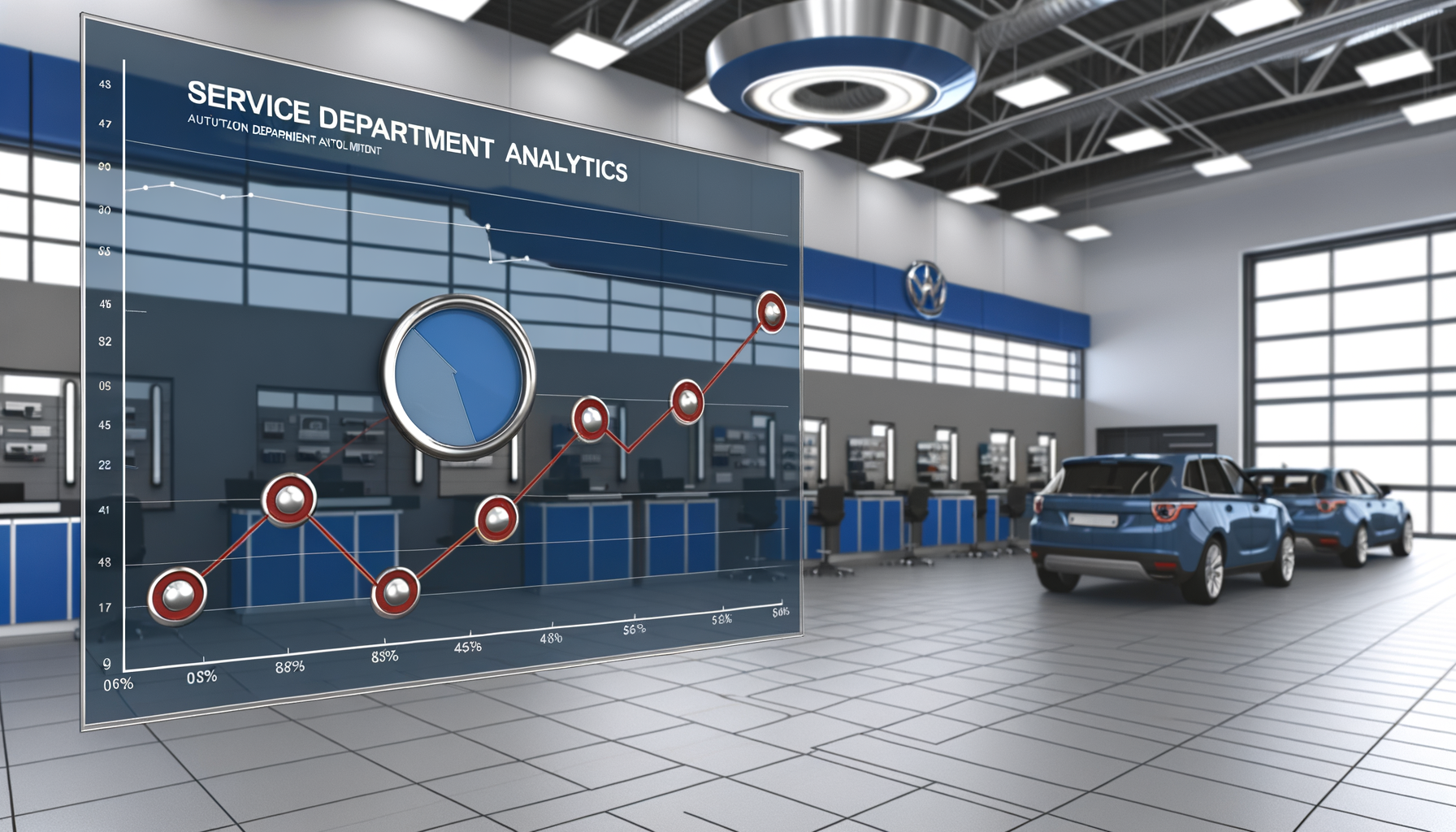Quantum Leap: Revolutionizing Automotive Service Through Data-Driven Insight

Understanding the Importance of Service Department Analytics

In 2025, automotive service departments face unprecedented challenges, from increased EV repairs to stringent OEM training requirements. This makes the role of analytics pivotal in navigating these complexities effectively.
Analytics provide actionable insights by transforming data into comprehensible formats, enabling service managers to make informed decisions. According to recent studies, dealerships employing advanced analytics have seen a 20% increase in service revenue.
To begin leveraging analytics, start by assessing your current data collection processes. Implement systems that centralize data for easier access and analysis. This can be achieved through integrated service management software like Auto Pro Solutions.
Key Metrics to Track for Enhanced Performance

Tracking the right metrics is essential for optimizing service department operations. Commonly, service managers focus on time-to-repair, first-time fix rates, and customer satisfaction scores.
Beyond the basics, consider monitoring technician productivity and parts availability metrics. For example, dealerships that track parts availability in real-time can reduce repair times by up to 30%.
To effectively track these metrics, set up automated reporting systems. These should provide real-time updates and alerts, enabling you to respond promptly to any deviations from expected performance.
Harnessing Predictive Maintenance Analytics

Predictive maintenance uses historical data and analytics to forecast potential vehicle failures, allowing service departments to preemptively address issues.
By leveraging predictive analytics, dealerships can improve customer satisfaction by reducing unexpected breakdowns. A dealership employing predictive maintenance analytics reported a 15% increase in customer loyalty.
Implement predictive analytics by integrating IoT sensors and telematics with your existing service systems. This enables continuous data collection and analysis, providing actionable insights into vehicle health.
Overcoming Common Analytics Challenges

Despite its benefits, analytics implementation can pose challenges such as data integration, staff training, and cost management.
Many dealerships struggle with integrating disparate data sources. To tackle this, invest in a unified data platform that consolidates information across systems.
Additionally, staff may require training to effectively utilize new analytics tools. Conduct workshops and continuous education sessions to bridge this knowledge gap.
Leveraging Technology to Automate Analytics

Automation in analytics can significantly enhance efficiency and accuracy in data handling. Automated systems eliminate manual errors and provide real-time insights.
Leading dealerships have adopted AI-driven analytics tools to automate data collection and analysis. This has resulted in faster decision-making and improved service outcomes.
Explore solutions like Auto Pro Solutions that offer integrated analytics and automation features tailored for automotive service departments.
Case Study: Successful Implementation of Analytics

Consider the example of XYZ Motors, which successfully implemented a comprehensive analytics strategy that resulted in a 25% increase in service department productivity.
By focusing on predictive maintenance and real-time data integration, XYZ Motors could preemptively address vehicle issues, reducing customer complaints by 40%.
Key to their success was investing in technology that facilitated seamless data flow and enhanced staff training programs to ensure efficient tool utilization.
Related Topics
Ready to take your service department to the next level?
Schedule your demo today and experience the power of Auto Pro Solutions.
Schedule Demo